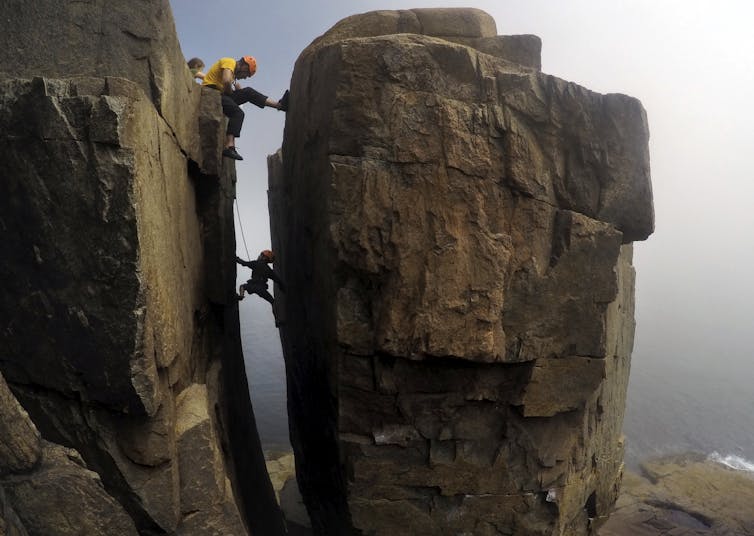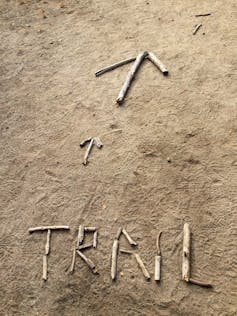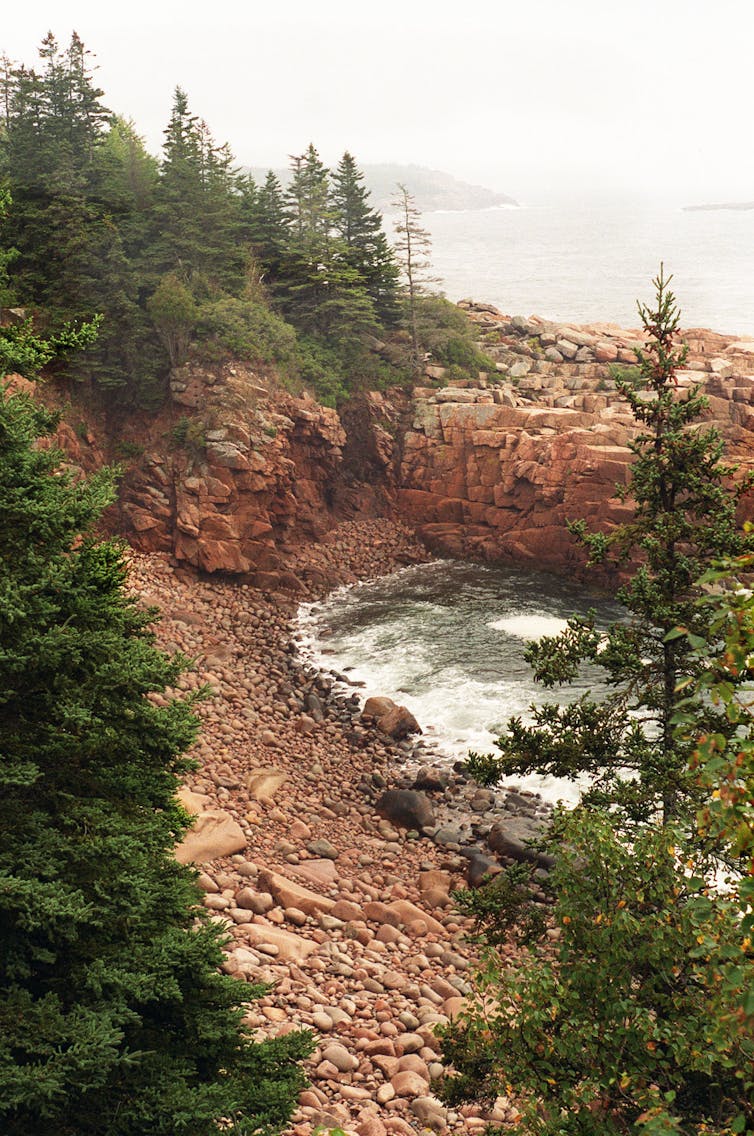Summer visitors to American parks choose safety first over freedom to roam
- Written by B. Derrick Taff, Assistant Professor, Recreation, Park and Tourism Management, Professor-in-Charge of Graduate Studies, Pennsylvania State University
In a typical summer, millions of Americans[1] head outdoors to national parks, hiking trails and rivers across the U.S. This summer, because of COVID-19 precautions, getting outdoors will be different, although how different isn’t certain.
My colleagues and I are part of a research team[2] at Pennsylvania State University that studies outdoor recreation and park management[3]. Our team recently conducted a national survey of more 1,000 outdoor enthusiasts across 47 states with the Leave No Trace[4] Center for Outdoor Ethics.
The survey[5] asked several key questions that included how those who use parks were considering a return to outdoor recreation this summer and how parks might be managed for COVID-19 to ensure the safety and security of park users.
The responses to the survey suggested that this summer, we may be entering a new era of park management. Outdoor recreationists not only say they want stricter enforcement of rules to keep people safe but that they welcome new guidelines and even limits to their freedoms so that all visitors can experience the benefits of nature without compromising their health due to COVID-19.
‘Wildness is a necessity’
The renowned naturalist John Muir wrote that “thousands of tired, nerve-shaken, over-civilized people are beginning to find out that going to the mountains is going home; that wildness is a necessity; and that mountain parks and reservations are useful not only as fountains of timber and irrigating rivers, but as fountains of life.” The world has changed immensely since he wrote this in 1901[6].
There are so many reasons why so many people visit America’s national parks.People, now more than ever[7], seek the benefits of nature[8] regardless of whether they live in rural Colorado or Manhattan. Experiencing the sights and sounds of nature[9] has long been thought to make people feel better. The desire to seek out those experiences is, perhaps, even biologically driven[10]. Today, there is a growing body of scientific evidence[11] that shows the positive links between exposure to the natural world and humans’ cognitive[12], physiological[13] and social[14] well-being.
Balancing recreation and risk
Our survey, carried out in April and May, examined how outdoor recreation behaviors across all types of parks and protected areas may be changing in response to the pandemic and with it, expectations of park management.
 Great Chimney Rock at Acadia National Park.
AP Photo/Robert F. Bukaty[15]
Great Chimney Rock at Acadia National Park.
AP Photo/Robert F. Bukaty[15]
Through their online list serve, individuals associated with the Leave No Trace Center for Outdoor Ethics[16] served as potential respondents for this research. This community consists largely of outdoor enthusiasts who are highly dependent on outdoor recreation[17] as a form of leisure. More than 1,800 surveys were completed in two phases and consisted of questions related to behavioral changes, making decisions about recreation and expectations for park management.
Findings from our research, “Evaluating the impacts of the COVID-19 pandemic to outdoor recreation and predicting long-term trends[18],” suggest that not only are recreational behaviors shifting and affecting certain demographics more than others, but expectations of park management have changed, too. Our survey reported that, in general, people are yearning to get back outside.
 AP Photo/Amanda Lee Myers[19]
Nearly 85% of those surveyed reported that they are very to extremely likely to return to public lands as soon as restrictions ease. The survey also reported that outdoor enthusiasts support increased preventive health measures in the parks including limits on visitor capacities and strict social distancing.
Urban dwellers, who have faced the most barriers to accessing parks, have, on average, significantly decreased their frequency of outdoor recreation by more than three days per week, while back-country travel has been reduced by nearly three miles. This is likely due to heightened restrictions on travel outside the home and increased park closures in and around major cities[20].
As a result, the U.S. may be in for an overcorrection or rebound[21] in activity once cities and states begin to relax safer-at-home orders and open their park systems. It may be that urban dwellers return to their favorite activities and recreation areas at even higher rates than before the pandemic.
How can we ensure a safe, healthy experience in our parks while balancing the health risks of a pandemic? Not without sacrifice[22].
Playing by new rules
By definition, an outdoor enthusiast appreciates the lack of constraints to explore the natural world[23]. Outdoor enthusiasts are normally not keen on limiting their freedom[24] to roam as they please. Mandatory permit systems and capacity limits at popular recreation sites have long been the bane of the outdoor adventurer[25]. Our research shows that COVID-19 has changed this perspective[26], at least for the time being.
Our research[27] shows that outdoor enthusiasts like hikers, canoeists, rock climbers and mountain bikers are largely supportive of park and protected area agencies like the National Park Service or Bureau of Land Management keeping greater control over visitor volume on public lands and trails. More than 75% either completely or strongly agreed that parks should implement capacity limits in response to COVID-19.
AP Photo/Amanda Lee Myers[19]
Nearly 85% of those surveyed reported that they are very to extremely likely to return to public lands as soon as restrictions ease. The survey also reported that outdoor enthusiasts support increased preventive health measures in the parks including limits on visitor capacities and strict social distancing.
Urban dwellers, who have faced the most barriers to accessing parks, have, on average, significantly decreased their frequency of outdoor recreation by more than three days per week, while back-country travel has been reduced by nearly three miles. This is likely due to heightened restrictions on travel outside the home and increased park closures in and around major cities[20].
As a result, the U.S. may be in for an overcorrection or rebound[21] in activity once cities and states begin to relax safer-at-home orders and open their park systems. It may be that urban dwellers return to their favorite activities and recreation areas at even higher rates than before the pandemic.
How can we ensure a safe, healthy experience in our parks while balancing the health risks of a pandemic? Not without sacrifice[22].
Playing by new rules
By definition, an outdoor enthusiast appreciates the lack of constraints to explore the natural world[23]. Outdoor enthusiasts are normally not keen on limiting their freedom[24] to roam as they please. Mandatory permit systems and capacity limits at popular recreation sites have long been the bane of the outdoor adventurer[25]. Our research shows that COVID-19 has changed this perspective[26], at least for the time being.
Our research[27] shows that outdoor enthusiasts like hikers, canoeists, rock climbers and mountain bikers are largely supportive of park and protected area agencies like the National Park Service or Bureau of Land Management keeping greater control over visitor volume on public lands and trails. More than 75% either completely or strongly agreed that parks should implement capacity limits in response to COVID-19.
 More than 3.4 million people visited Acadia National Park last year, earning it the rank of seventh most visited national park in the U.S.
AP Photo/Christina Hinke[28]
These increased rules, which may include limiting usage and allowing people to enter a trail or park at timed entry allotments, are designed to keep people safe and allow for physical distancing.
Our survey demonstrated that over 95% of outdoor enthusiasts also want park and protected area staff to use personal protective equipment such as masks, encourage all visitors to wear masks and provide visitors with sanitary amenities like hand sanitizer. Those who perceive themselves as being at higher risk of serious illness as a result of COVID-19 are significantly more supportive of heavier restrictions and increased safety measures.
Our research suggests that people will be guided[29] by two things this summer when deciding whether or not to visit parks. One, the importance of their physical and mental well-being as a result of outdoor recreation. And two, guidance from the Centers for Disease Control and Prevention, the World Health Organization and federal and state agencies. Above all, outdoor enthusiasts are eager to get back outside and do the things they love, safely.
[Get facts about coronavirus and the latest research. Sign up for The Conversation’s newsletter.[30]]
More than 3.4 million people visited Acadia National Park last year, earning it the rank of seventh most visited national park in the U.S.
AP Photo/Christina Hinke[28]
These increased rules, which may include limiting usage and allowing people to enter a trail or park at timed entry allotments, are designed to keep people safe and allow for physical distancing.
Our survey demonstrated that over 95% of outdoor enthusiasts also want park and protected area staff to use personal protective equipment such as masks, encourage all visitors to wear masks and provide visitors with sanitary amenities like hand sanitizer. Those who perceive themselves as being at higher risk of serious illness as a result of COVID-19 are significantly more supportive of heavier restrictions and increased safety measures.
Our research suggests that people will be guided[29] by two things this summer when deciding whether or not to visit parks. One, the importance of their physical and mental well-being as a result of outdoor recreation. And two, guidance from the Centers for Disease Control and Prevention, the World Health Organization and federal and state agencies. Above all, outdoor enthusiasts are eager to get back outside and do the things they love, safely.
[Get facts about coronavirus and the latest research. Sign up for The Conversation’s newsletter.[30]]
References
- ^ millions of Americans (irma.nps.gov)
- ^ research team (www.researchgate.net)
- ^ outdoor recreation and park management (hhd.psu.edu)
- ^ Leave No Trace (lnt.org)
- ^ The survey (osf.io)
- ^ he wrote this in 1901 (vault.sierraclub.org)
- ^ now more than ever (doi.org)
- ^ the benefits of nature (youtu.be)
- ^ sights and sounds of nature (www.georgewright.org)
- ^ even biologically driven (doi.org)
- ^ growing body of scientific evidence (www.researchgate.net)
- ^ cognitive (doi.org)
- ^ physiological (doi.org)
- ^ social (doi.org)
- ^ AP Photo/Robert F. Bukaty (www.apimages.com)
- ^ Leave No Trace Center for Outdoor Ethics (lnt.org)
- ^ highly dependent on outdoor recreation (doi.org)
- ^ Evaluating the impacts of the COVID-19 pandemic to outdoor recreation and predicting long-term trends (osf.io)
- ^ AP Photo/Amanda Lee Myers (www.apimages.com)
- ^ in and around major cities (ce.naco.org)
- ^ overcorrection or rebound (doi.org)
- ^ Not without sacrifice (babel.hathitrust.org)
- ^ the lack of constraints to explore the natural world (doi.org)
- ^ not keen on limiting their freedom (youtu.be)
- ^ have long been the bane of the outdoor adventurer (babel.hathitrust.org)
- ^ changed this perspective (doi.org)
- ^ Our research (doi.org)
- ^ AP Photo/Christina Hinke (www.apimages.com)
- ^ people will be guided (osf.io)
- ^ Sign up for The Conversation’s newsletter. (theconversation.com)
Authors: B. Derrick Taff, Assistant Professor, Recreation, Park and Tourism Management, Professor-in-Charge of Graduate Studies, Pennsylvania State University

